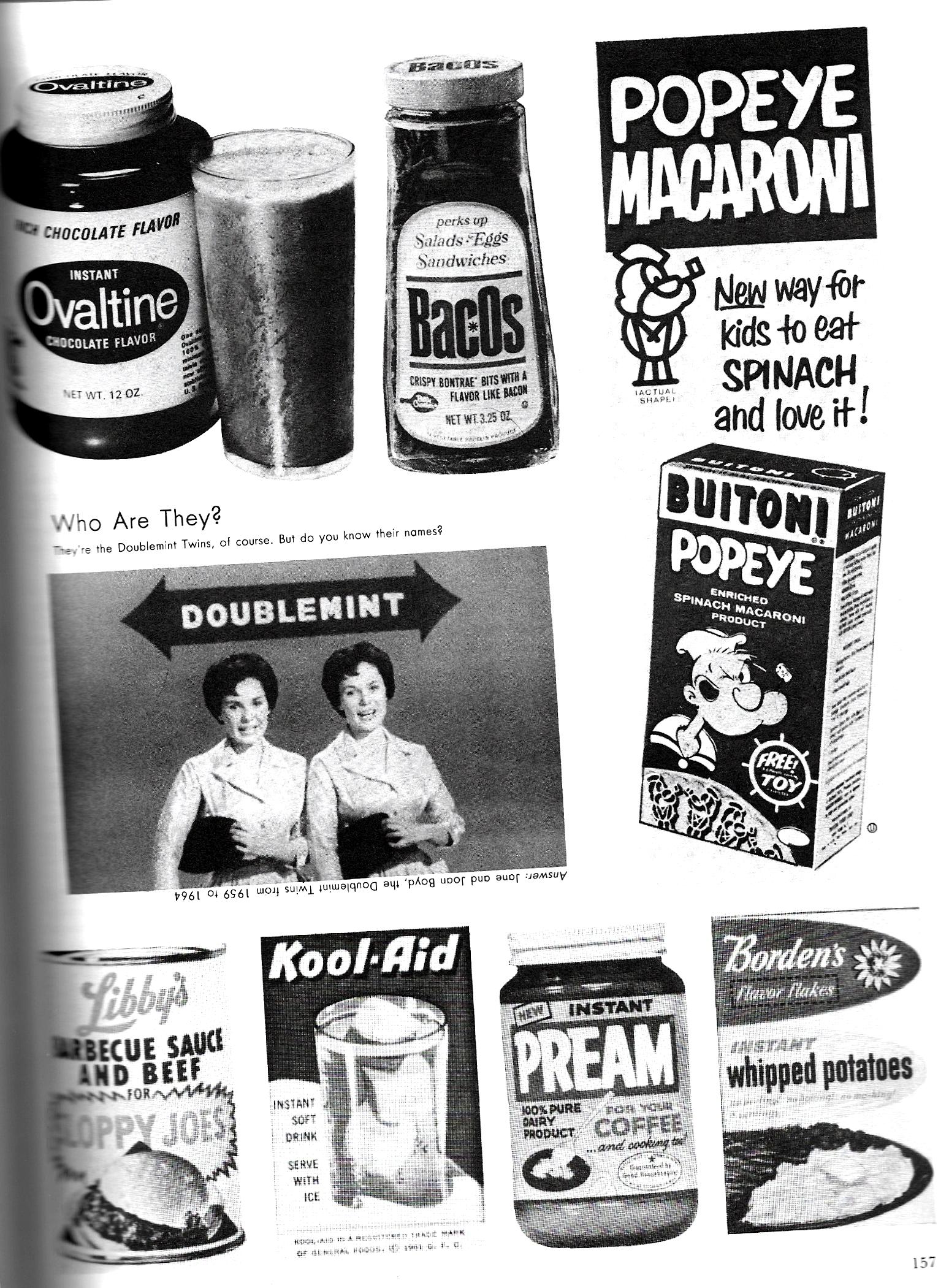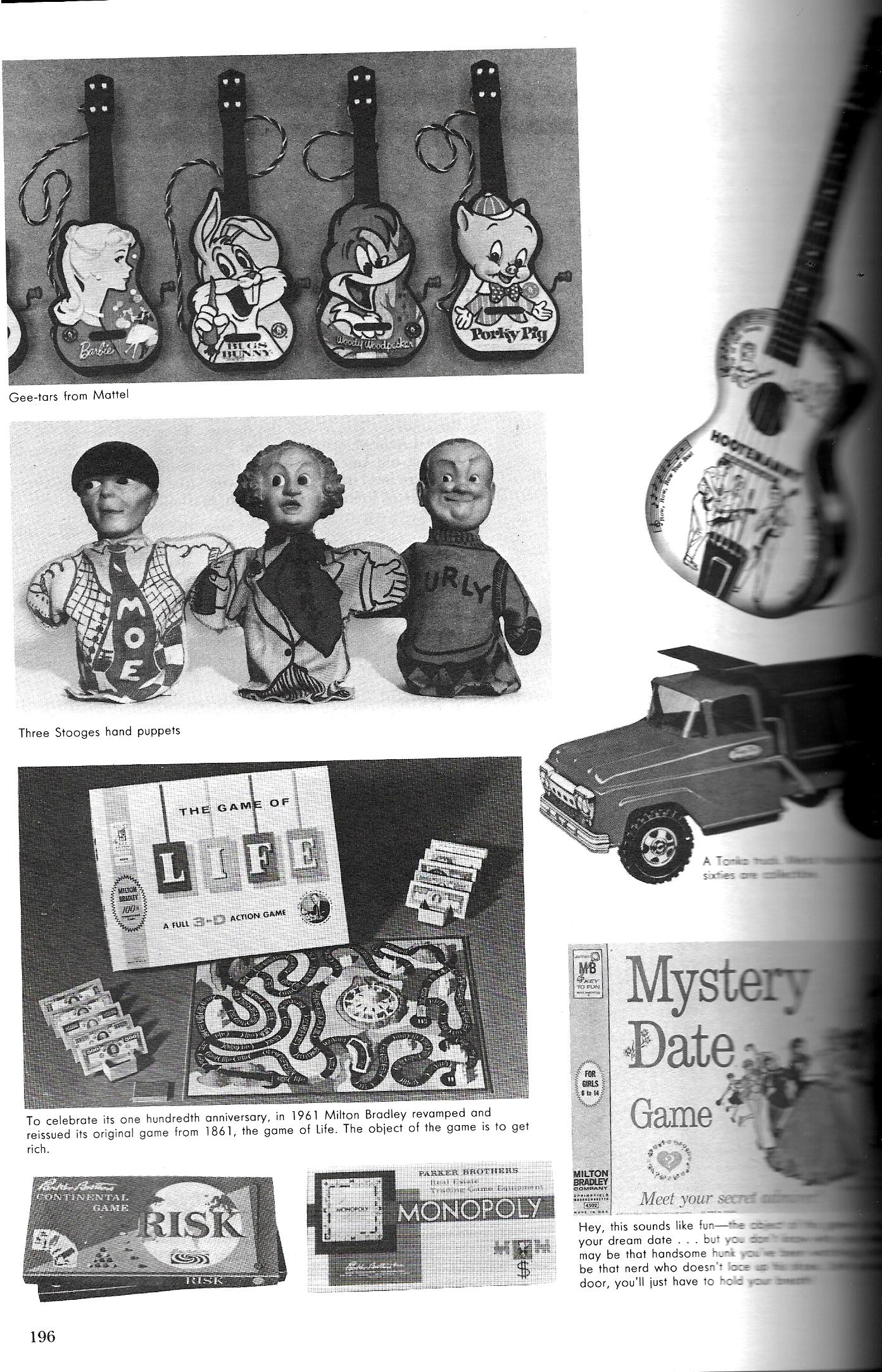- RadioActive
- Moderator
 Offline
Offline
Instant Replay: The Things You Never Knew About Local Radio & TV
Sometimes it’s the little things that are lost to history. But if one or two small details had changed, the way radio and TV in the GTA looks today would be very different. These are the odd stories that didn’t seem like much at the time, but might have changed the course of broadcast history.
American TV Literally Comes to Canada
Canada has an unfortunate history when it comes to broadcast innovation. The U.S. got TV in the 40s. Our first station, CBLT Toronto, didn’t come along until 1952.
They had colour TV in the 50s. We didn’t get any hues besides black and white until 1967.
And the Americans went all HD in 2009 before we made the same move in 2011.
So it might surprise you that the Americans wanted in on our TV market on this side of the border before there even was a TV market here.
From Sept. 1946:

The Sound Of Video
Imagine if the sound on your old analogue TV was delivered on AM instead of FM. It appears that’s the way experts were leaning when they got ready to set the standards for video broadcasting way back in 1944.

CKVR Channel 3 In Toronto?
We’re used to stations near the top market, Toronto, trying to take advantage of that proximity. But if things had gone differently, Barrie’s Channel 3 might not have been there for long. We’ve published this before, but it’s worth another look.

CHCH TV Channel 13?
Back before CHCH was officially on the air, it appeared they might not assume their now longtime dial position. Instead, you would have had to click two stations over. From 1953:

Channel 11 is where they were when sign-on day finally came the following January.

If 13 had been used, what might have happened to CKCO Kitchener? It was looking higher up the dial.
April 1953:

Channel 19 Was In The Planning For Almost A Decade
It signed on as CICA, Channel 19 in 1970, the first educational station on UHF in Canada. But did you know that position on the dial was reserved for such an entity way back in 1961?

Parlez Vous CFTO?
It’s hard to imagine that this would have ever happened, but it appears Channel 9 might well have been planned to be Channel Neuf if things had been different.

Fortunately for Toronto TV audiences, la plus ca change etc.

So What Would Have Happened To Channel 25?
A lot of people were speaking English when it came to try for what is now CBLFT, Channel 25. It’s hard to say who might have gotten Channel 16, if things had been different in 1968. And can you imagine the infamous Allen Brothers, owners of CHIC, running a television station?

Would You Pay $2.50 For The CBC?
Critics say it’s not worth a plug nickel, but at one time, Canadians were forking over $2.50 a year for the privilege of listening to the CBC.
Oct. 1946:

Canadian Radio & TV: Never On A Sunday?
In a place where Sunday shopping wasn’t a fact of life until recently and TV and radio stations stay on 24 hours a day, it seems almost impossible to believe – but several radio stations, including the CBC, once got into big trouble for daring to broadcast on the last day of the weekend. And it wasn’t deemed kosher until early 1959.

Speaking Of Bans…
It’s impossible to imagine what a Hockey Night in Canada broadcast might have looked like, considering radio stations weren’t allowed to speak a word about the demon liquor on their airwaves back in the 1940s, despite CFRB’s best efforts.
March 1946:
One month later came this “dry” decision:

But liquor ads eventually came into common use. Not so this product, until August 1971.

Oakville’s CHWO Almost Came In Hot
They would be great call letters today. But back in April 1956, no one was using the word “hot” the way it’s used today.

Less than seven months later, everything had changed.

CKLW In Trouble Over CanCon – In 1960!
Some believe the end of the Big 8 came when the CRTC mandated 30% Canadian content on all radio stations. So in a somewhat ironic foreshadowing of what was to come, the CRTCs predecessor called the company's TV station on the carpet in 1960 for not showing enough Cancon.

As bad as some felt about that 30% rule in the early 70s, this story from Feb. 1961 shows it could have been a lot worse. 55% Cancon? Yikes!

And Now A Word From Our Sign-Off
Hard to know how long this lasted, but what a strange concept back in the days when some stations weren’t on the air 24/7. WBEN-TV tried to buy their sign-off announcements in 1955, to tell listeners there was somewhere else to tune.

Baseball Broadcasts On Radio: “You’re Out!”
Considering how ubiquitous baseball has been on radio over the years, this decision by two teams in 1943 is simply unbelievable. I’m assuming it didn’t last long.

What was in the water that year? Turns out, it took until 1943 to ease a ban on something we take for granted these days.

It’s All Thanks To The Competition
And finally, something you’ll likely never see again. A Buffalo TV station taking out a full page ad thanking its competition.

Next week: It’s Saturday morning all over again, with a look back at what you were watching year-by-year as a kid.
- mace
- Member
 Offline
Offline
Re: Instant Replay: The Things You Never Knew About Local Radio & TV
RA: I have a long out of print book entitled "The TV Schedule Book" which lists the Broadcast network schedules from 1946-1983. In addition to the primetime schedules, the weekday and weekend daytime schedules are also included. The primetime schedule is broken down into Spring, Summer, Fall and Winter blocks allowing the capture of summer only and mid season replacement series premieres. Even the short lived Dumont network schedules are included. If you need any clarifications on Saturday morning network offerings, I would be happy to assist.
- RadioActive
- Moderator
 Offline
Offline
Re: Instant Replay: The Things You Never Knew About Local Radio & TV
That would be great Mace, thanks!
Next week's "Instant Replay" won't be of interest to everyone. It's simply a reprint of every Saturday morning listing in the Lake Ontario edition of TV Guide from 1953-1975. The only problem - I discovered I don't have any Guides from 1958, so that's missing. If you think you can provide that (from sign-on to about 12:30 PM), it would help complete the list.
Anything else you think might be interesting to those here would be of interest to me, as well. Thanks for the offer!
And I love those long out of print books. I have a good number of them, with my favourite being a large paperback called "60s!" You might think it would be an in depth look at a transformational decade. But instead, it's simply page after page of ads, products, toys, music, foods, inventions and trends from that decade.
Here are a few sample pages: (Sorry they're a bit blurry - it's tough to scan a bound paperback without destroying the binding.)

(From "60s" St. Martin's Press)
- •
- gloryosky
- Member
 Offline
Offline
Re: Instant Replay: The Things You Never Knew About Local Radio & TV
One has to wonder how long NTV would have lasted had Al Bruner rolled CHCH into the "third national network" application - which had English-and-French-language components, which I assume is the reason for the two applications - and had Power Corporation maintained its funding for NTV. Bruner got his scaled-down, English-only service going as Global after he was no longer with Niagara Television, but what a way to go just to launch a provincial network, last a handful of months and be forced out due to various commercial realities.
Last edited by gloryosky (July 29, 2019 8:53 pm)
- mace
- Member
 Offline
Offline
Re: Instant Replay: The Things You Never Knew About Local Radio & TV
Saturday Morning TV Fall 1958: ABC- local programming 7-11AM. 11AM: Uncle Al Show. Noon-5PM-local programming. CBS-local programming 7-9:30AM: 9:30 Captain Kangaroo. 10:30 Mighty Mouse Playhouse. 11AM Heckle&Jeckle 11:30 Robin Hood. 12:00 George Hamilton IV Show. 1-2PM Local programming. NBC-local programming 7-10AM. 10AM Howdy Doody. 10:30 Ruff & Reddy 11AM Fury 11:30 Circus Boy 12:00 True Story 12:30PM Detective Diary 1-2pm local programming. It took until the Fall of 1962 for ABC to come up with a two hour block [11-1] of kid's programming. By then, CBS had a 9-1 schedule and NBC 9:30-1. It will be interesting to see how much of the network offerings were carried by the Buffalo, Erie, Rochester and Syracuse affilliates.
- RadioActive
- Moderator
 Offline
Offline
Re: Instant Replay: The Things You Never Knew About Local Radio & TV
Thanks Mace!
I'll link back to your post when the new one goes up on the weekend. Much appreciated.
- •
 1 of 1
1 of 1